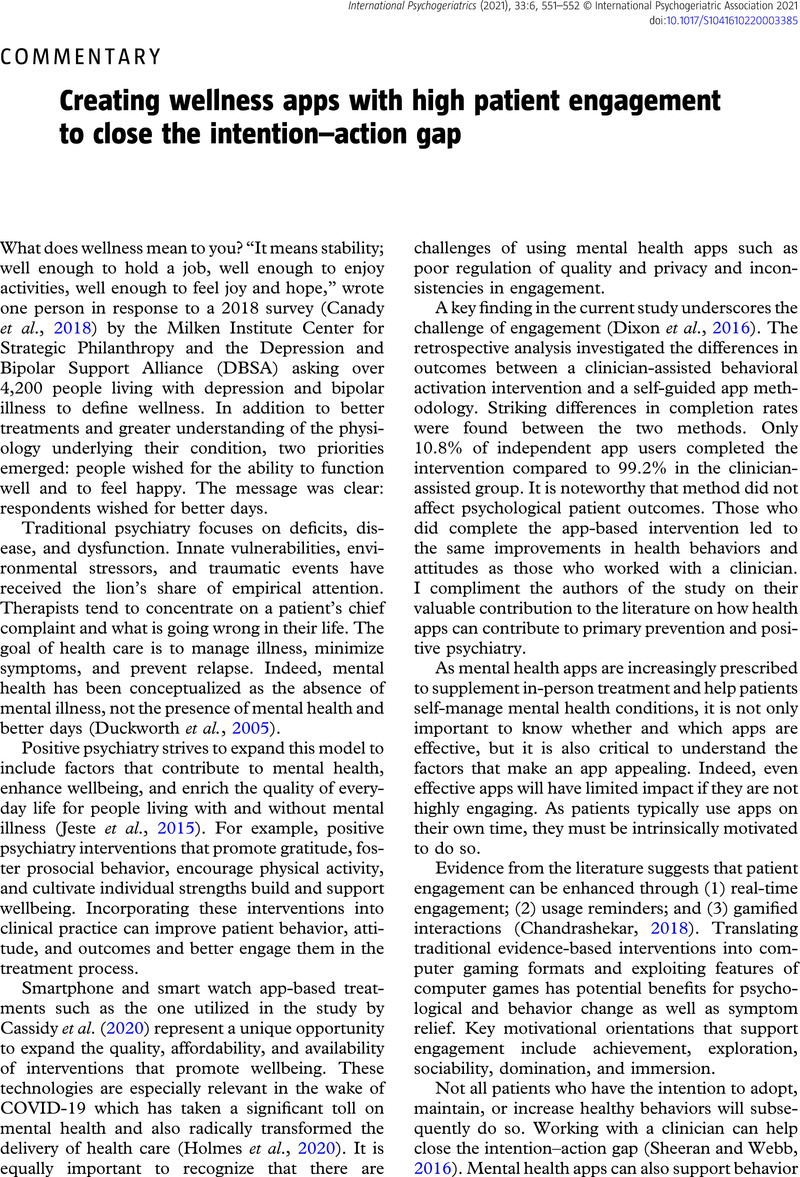Crossref Citations
This article has been cited by the following publications. This list is generated based on data provided by Crossref.
Nwosu, Adaora
Boardman, Samantha
Husain, Mustafa M.
and
Doraiswamy, P. Murali
2022.
Digital therapeutics for mental health: Is attrition the Achilles heel?.
Frontiers in Psychiatry,
Vol. 13,
Issue. ,
Welsh, Ellen T
McIntosh, Jennifer E
Vuong, An
Cloud, Zoe C G
Hartley, Eliza
and
Boyd, James
2023.
Design of digital mental health platforms for family member co-completion: Scoping Review (Preprint).
Journal of Medical Internet Research,
Brotherdale, Rebecca
Berry, Katherine
Branitsky, Alison
and
Bucci, Sandra
2024.
Co-producing digital mental health interventions: A systematic review.
DIGITAL HEALTH,
Vol. 10,
Issue. ,
Park, Jin Young
2024.
Current status and future development of digital therapeutics.
Journal of the Korean Medical Association,
Vol. 67,
Issue. 2,
p.
76.





